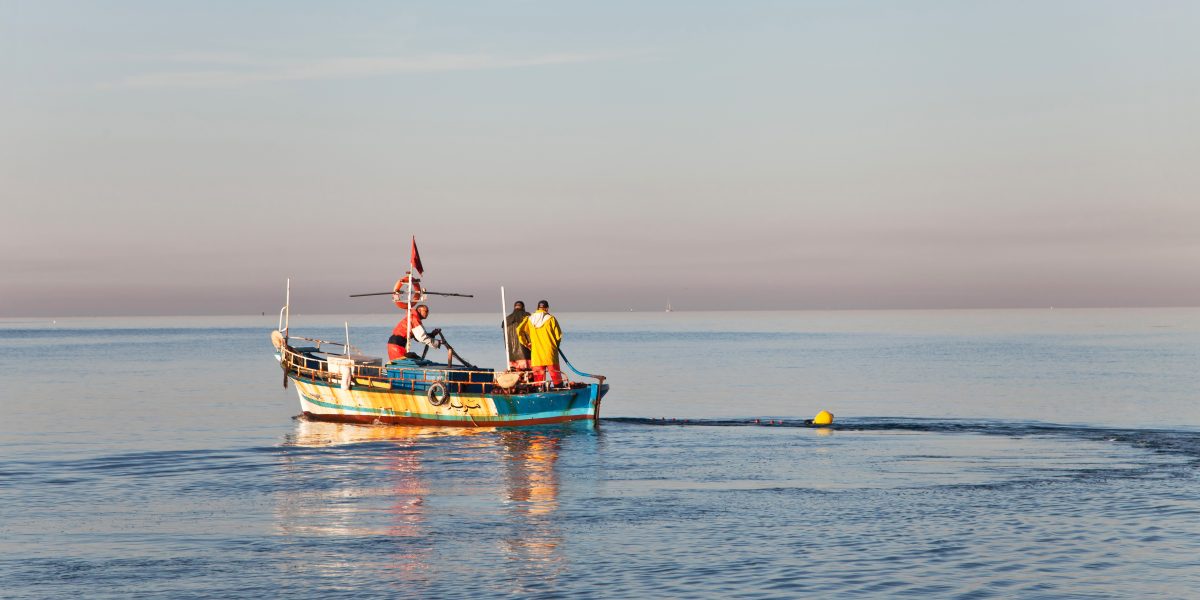CREDA
When a hake is cooked in our oven, it is in the last stop on the long journey that fish go through since getting caught at sea. Many roles and industries work together to make it possible. It starts with the fishers from them to the distributors, and finally to the wholesalers and the retail stores, where we, the consumers, end up buying it.
In this supply chain, there are many occasions when fish are wasted. In order to minimize this waste, in recent years several initiatives have been carried out, and one project that was born in response to the demand of the fishing sector is being carried out by CREDA. The aim is to collect data from the entire chain to detect weak points, that is, to identify where edible fish are being wasted.
This and other initiatives have taken place under the new Common Fisheries Policy (CFP). The new legislation has achieved two main objectives: on the one hand, to reduce fish waste and, on the other, to have greater control of stocks, something that is essential but not easy in fishing — estimating fish stocks is not like counting how many sheep there are on a farm! Historical ignorance of the state of fish populations has stopped us from knowing if we are achieving a sustainable fishing activity or if we are overexploiting the oceans.
To know more about the new law that has been implemented and how it affects us, we’ve spoken with Saray Ramírez Rodríguez, a biologist who specializes in marine resources production, professor at the UPC and researcher at CREDA.
Discarding less, eating more
Ramírez tells us that during the fishing process, it is not easy to catch only the desired prey and, for this reason, fishermen have always discarded non interest individuals, a practice that consists of returning the fish accidentally caught to the sea. There are several reasons why a fish gets rejected; for its size, due to the quota (which restricts the species and the quantity that fishers are allowed to catch) or because they are difficult to sell. Sometimes these discarded fish survive, but many times they don’t.
For example, in purse seine fishing, which is not very aggressive because it is practised on the surface (at most 30 meters deep, without touching the bottom), fishers attempting to catch sardines may catch a sunfish by mistake, but those specimens can be easily identified before coming onboard, and thus returned to the sea alive. However, if they inadvertently catch sardinellas (which are similar in size to a sardine) they cannot identify the specimens until they are already on deck, and very likely dead. Before the new Common Fisheries Policy was introduced, dead sardinellas were often discarded at sea.
“The large amount of unmeasured discards in fishing is undoubtedly a huge food waste and doesn’t allow us to know the real impact we have on the ecosystems,” Ramírez says. In addition, if we do not know how many fish we catch because many don’t reach the port, we cannot control the state of fish populations.
To change this situation, the Zero Discards law of the Common Fisheries Policy (CFP), promoted by the EU, obliges fishermen to bring everything they catch to port.
In the Mediterranean, the law allows for some flexibility and includes the “minimis” exemption. Ramírez explains that the “minimis” establishes a specific number of fish that can be discarded, for reasons of size or quota, and doesn’t require landing, thus it doesn’t imply a cost for the fishers. In return, it asks the fishers to make a note of their discards. With this practice, regulators can have control of what we are discarding and food waste is reduced at the fishing stage, while allowing for a much wider variety of fish in stores — fish which previously would have been discarded.
Fishermen; the law in their hands
To make this law properly work the responsibility of the fishermen is essential, because it’s on them to bring everything they catch to the port, without exceeding the “minimis” and keeping a record of the discards.
Saray Ramírez tells us that, based on her own experience embarking in the Mediterranean, this law has been very well received by all the actors involved, because in the long term “it gives more than it takes away” from the fishermen. Although it asks for a small effort from them, it also ensures that year after year they’ll be able to keep fishing in a healthy ecosystem. The Mediterranean fishermen that Ramírez has been able to meet are aware of this: “if they fish more than they should, they are harming themselves”.
Beyond the rule
To make zero discards a reality, the law includes a dissemination side, with many initiatives to raise awareness in all sectors from fishermen to distributors, wholesalers, retailers, and consumers.
Researcher Ramírez tells us that to provide knowledge to optimize resources, CREDA researchers also work on revaluing new species by developing market studies. In this way, CREDA provides key information to introduce to society the consumption of new species which were previously discarded.
Our work at CREDA, the new Zero Discards law and other public initiatives are managing to reduce food waste, ensure better control of stocks, and foster a greater variety of fish available to eat, all while achieving better conservation of the oceans.


